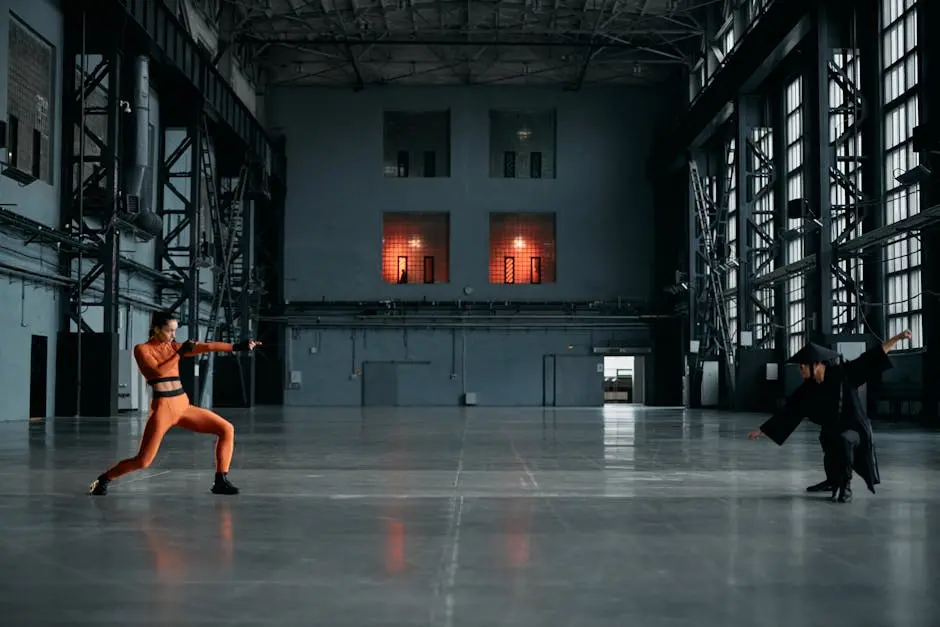Donnie Yen has become a household name in the world of martial arts cinema. His dynamic fighting style and captivating performances have not only entertained audiences but also redefined martial arts films. In this blog, we will delve into how Donnie Yen’s movies have influenced both the genre and the film industry as a whole, exploring his unique contributions and the lasting legacy he’s created.
The Rise of Donnie Yen: A Brief Overview
From his early days in Hong Kong cinema to becoming an international star, this section will highlight key milestones in Donnie Yen’s career and how they contributed to his current status in martial arts films.
Donnie Yen’s journey began in the bustling streets of Hong Kong, where he trained in various martial arts disciplines. His dedication and skill soon caught the attention of filmmakers, leading to significant roles in films that showcased his extraordinary talent. One of the turning points in his career came with his role in ‘Iron Monkey,’ where his blend of acrobatics and traditional martial arts captivated audiences and critics alike. As Donnie continued to grow, he became a prominent figure in the martial arts genre, bringing a fresh perspective and innovative fight styles that set him apart from his contemporaries.
Another pivotal moment was his collaboration with director Wilson Yip on the ‘Ip Man’ series. These films not only reaffirmed his prowess as a martial artist but also established him as a box office draw. Yen’s ability to portray the legendary Wing Chun master, Yip Man, allowed him to connect with audiences on an emotional level, illustrating the struggles and resilience of martial artists. Through this portrayal, Donnie Yen became a symbol of hope and inspiration for many, including a new generation of martial artists.
Innovative Fight Choreography: Donnie Yen’s Signature Style
Donnie Yen is known for his unique approach to fight choreography, blending various martial arts styles. This section will explore some of his most iconic fight scenes and how they’ve influenced choreography in other films.
One of the hallmarks of Donnie Yen’s fighting style is his ability to seamlessly integrate different martial arts techniques. For instance, in films like ‘SPL’ and ‘Flash Point’, he fuses Wing Chun with elements of Muay Thai and Brazilian Jiu-Jitsu. This innovative combination not only creates visually stunning fight sequences but also adds a layer of realism that resonates with audiences. Donnie’s choreography often emphasizes fluidity and spontaneity, which allows each fight to feel fresh and unpredictable. The impact of his work has reverberated through the martial arts genre, inspiring a new wave of filmmakers to rethink how action can be both expressive and intricately choreographed.
Moreover, his collaboration with seasoned fight choreographers like Sammo Hung has resulted in some of the most breathtaking action sequences in modern cinema. For example, the climactic battles in ‘Ip Man’ showcase a blend of speed, precision, and emotional depth that is rare in action films. Each punch and kick is not just a physical confrontation but an expression of the characters’ internal struggles, making the choreography integral to the storytelling. The way Donnie approaches fight scenes as narrative tools has influenced countless other films, encouraging filmmakers to recognize the importance of choreography in telling compelling stories.
Storytelling in Action: The Narrative Depth in Donnie Yen Movies
This section will examine how Donnie Yen’s films combine action with heartfelt storytelling, adding depth to characters and emotional weight to fight sequences.
At the heart of Donnie Yen’s films lies a strong narrative that often explores themes of honor, sacrifice, and redemption. His characters are frequently layered and complex, reflecting both their triumphs and vulnerabilities. For instance, in ‘Kung Fu Jungle’, Yen plays a martial arts instructor who finds himself on a deadly quest to stop a serial killer. This gripping storyline not only showcases his fighting ability but also his depth as an actor, allowing audiences to connect with his character on a personal level. The emotional stakes in his movies are crucial; they elevate each fight scene from mere spectacle to moments of profound significance.
Another exemplary film is ‘Ip Man 2’, where the fight against cultural prejudice becomes a central theme. Here, Yen’s portrayal of Ip Man is not just that of a master martial artist but a symbol of resilience in the face of adversity. Each clash in the film serves a dual purpose: showcasing Yen’s impressive fighting skills while also narrating the journey of overcoming discrimination and asserting one’s identity. This blend of compelling stories with intense action has turned his films into thoughtful commentaries on societal issues, thus appealing to a wider audience and deepening the genre’s narrative complexity.
Cultural Impact: How Donnie Yen Redefined Martial Arts Cinema
Donnie Yen’s influence extends beyond the screen. In this section, we’ll discuss his role in popularizing martial arts globally and the cultural significance of his films.
Throughout his career, Donnie Yen has played a pivotal role in bringing martial arts into mainstream global culture. By combining stunning visuals, intricate choreography, and relatable storytelling, he has introduced audiences around the world to the beauty and depth of martial arts. His films, such as ‘The Legend of the Fist: The Return of Chen Zhen’, not only celebrate the art form but also delve into cultural histories and narratives that resonate with viewers, thereby fostering an appreciation for martial arts as a vital part of cinematic art and culture.
Moreover, has served as an ambassador for martial arts, demonstrating its values of discipline, perseverance, and respect. His appearances at international film festivals and martial arts events have inspired many budding filmmakers and martial artists to pursue their passions. By participating in workshops and training camps around the world, he has connected diverse communities through a shared love of martial arts, further solidifying his status as a cultural icon. Yen’s impact is evident, inspiring not just filmmakers, but martial artists to elevate their craft, explore their heritage, and embrace the artistry embedded within martial arts.
Future of Martial Arts Films: The Next Chapter After Yen
As a prominent figure in martial arts cinema, what does the future hold for the genre after Donnie Yen? This section will explore emerging talents and trends in martial arts films inspired by Yen’s legacy.
Looking forward, the future of martial arts films seems brighter than ever, with a wealth of emerging talent eager to carve their niche in the industry. Many young martial artists and filmmakers are seeking inspiration from Donnie Yen’s work, eager to build upon the foundations he has laid. This resurgence is evident in recent films that experiment with unique storytelling and innovative choreography while paying homage to the traditional roots established by legends like Yen. The rise of digital platforms has also opened doors for a wider variety of martial arts films, allowing for unique stories from different cultures to flourish.
Furthermore, the influence of technology in filmmaking is leading to new opportunities for creative expression within the genre. Virtual reality and cutting-edge CGI are increasingly being utilized to enhance fight sequences, making them even more thrilling and immersive. However, it’s crucial for filmmakers to remember the core values that Donnie Yen exemplified—authenticity and a commitment to storytelling. As they navigate this evolving landscape, they have the chance to honor the legacy of Yen while bringing fresh perspectives to martial arts cinema.
The Enduring Legacy of Donnie Yen
In conclusion, Donnie Yen’s films have sparked a renaissance in martial arts cinema, blending traditional techniques with modern storytelling. His commitment to authenticity, innovation in choreography, and ability to engage viewers on emotional levels have set new standards for the genre. As we look to the future, it’s exciting to think about how his influence will continue to shape martial arts films and inspire a new generation of filmmakers.


